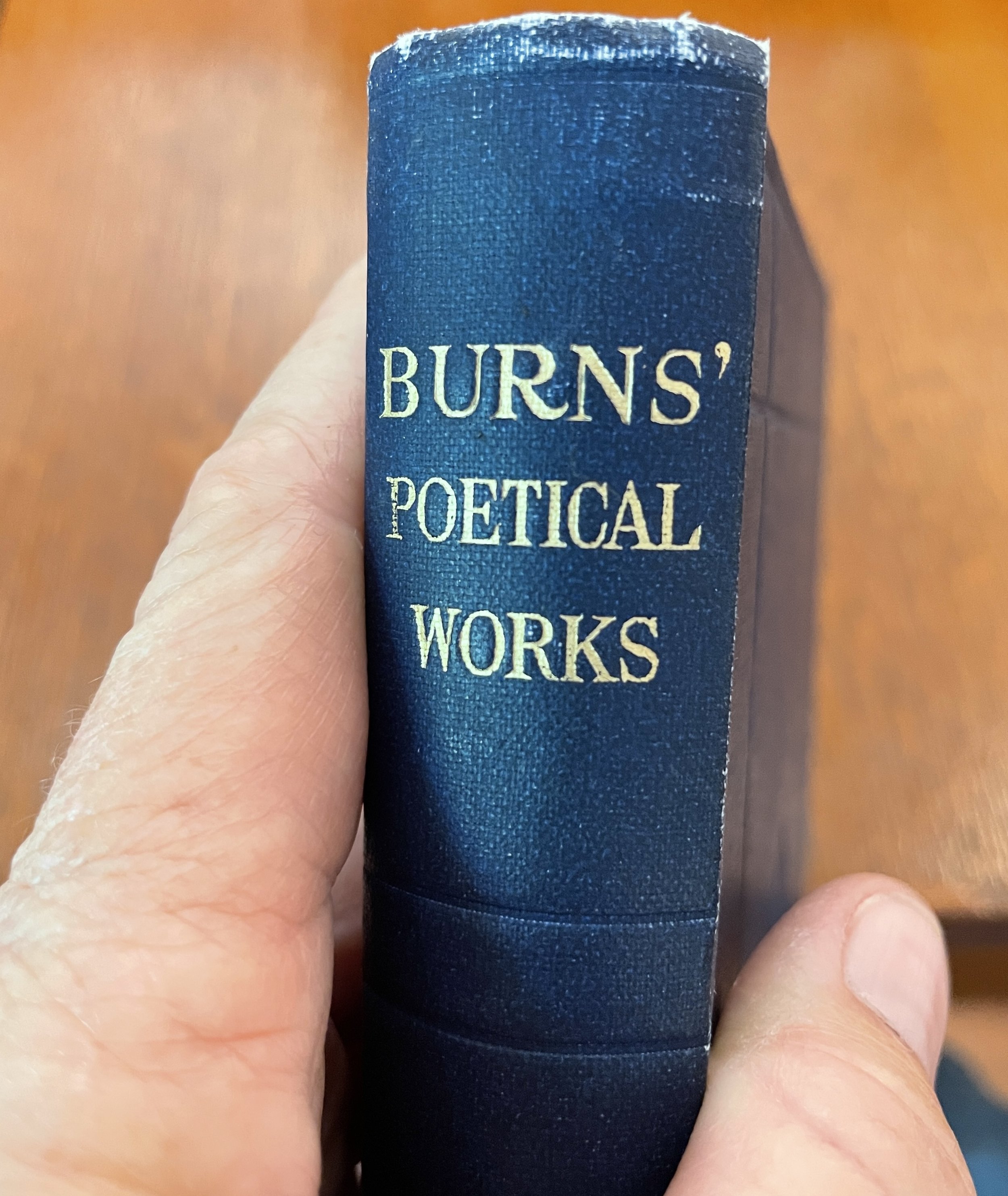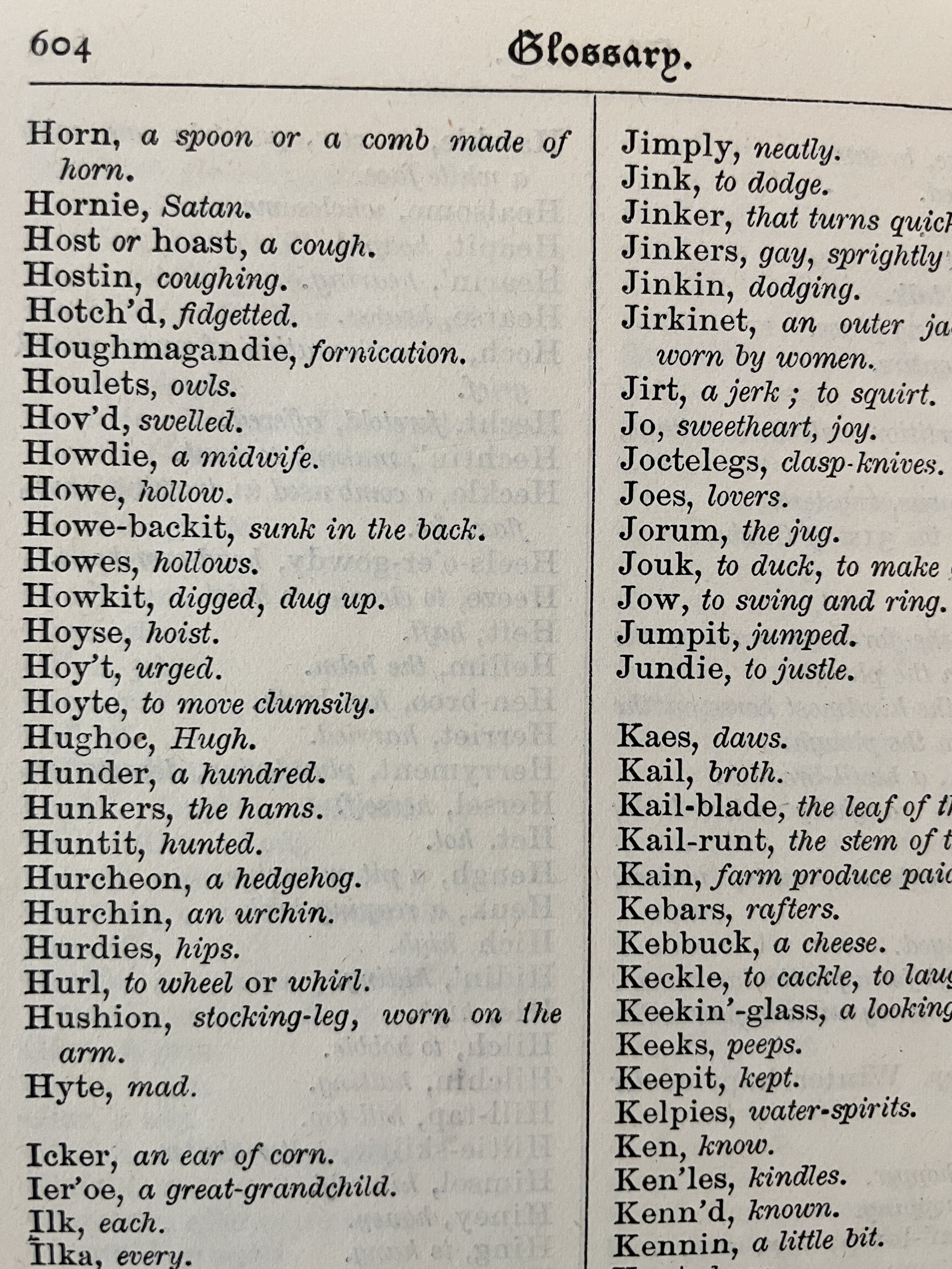WHY I SING IN LOWLAND SCOTS DIALECT
It's not news that I love singing traditional Scottish music. Many people think I sing in Gaelic, but noo, dearie, it isnae true. I was passionate about all things Scottish when I was young, an attraction I absorbed from my father who took me to the Scottish Games when they were still held at the Sonoma County Fairgrounds, and at one time I vowed to learn Scots Gaelic. I bought myself a copy of MacLaren's Gaelic Self-Taught and later joined a language study group at UC Berkeley to practice conversation; but many in the group were officious, so that quickly lost its charm. I gathered books of Hebridean folk tunes, all in Gaelic (pronounced Gal-lick) and thought the music was very beautiful. But it turns out I didn't (and still don't) have the patience required to learn more than a few funny phrases like, "Is toil leam brochan gu mòr," which means "I like porridge a lot."
However, I did learn to understand Lowland Scots—because I became a teenage aficionado of Robert Burns. (So nerdy!) I spent almost as much time perusing the Scots glossary as reading the poems and songs. I now realize that—having descended from Lowlanders in Ayrshire—my father's limited knowledge didn't much include the Highlands and Hebrides where Gaelic was most common, so it turns out I had focused on the language of my own heritage. Burns' sense of humor and irony has always felt oddly familial.
I often wonder if "genetic memory" is real. Why did my Scottish roots have more romance for me than the wee bits of French, Irish or English I also inherited? Was it simply because my father spoke of Scotland so fondly? Or is there something to the idea that some things just resonate for us on a cellular level? Is genetic memory to blame for my fondness for Lowland Scots?
I guess it doesn't matter if it gives me pleasure. I still worry that my American attempt at Scots falls short, but have been assured by several Scottish folks over the years that they applaud any effort to keep such language alive. It would feel disrespectful to "Americanize" songs written in Scots for that very reason. Here's me trying to do my best with the Gipsy Lass, a poem written by Violet Jacob. I've mentioned her before; she was a Scottish poet who championed Lowland Scots in the late 1800s. The song's story is of a Traveller (indigenous person of Scotland) lass telling her landed gentry beau that life together would never work out. The tune was written by Dave Whyte.
Here's how the lyrics roughly translate:
The road I travel is not for you, (Sandy, Sandy)
You must not endure the life I live
You must not link your life with shame, nor think to take into your home
A gipsy lass without a name
I never knew who fathered me
For mother's been with two or three
The gipsy heart must always range, and so it's maybe not that strange
That I—like her—am fond of change
I could not stand a house of stone
For me, the bracken (ferns) is up the road
Your eyes so bonnie blue and clear would lose their cheery look I fear
Before we had been wed a year
And though I love you well now
I know I'd give you cause to rue
So go your ways, they'll never be mine, for you and me who've kissed must part
But oh, I'm sad to lose my lad, Sandy dear, my lad


